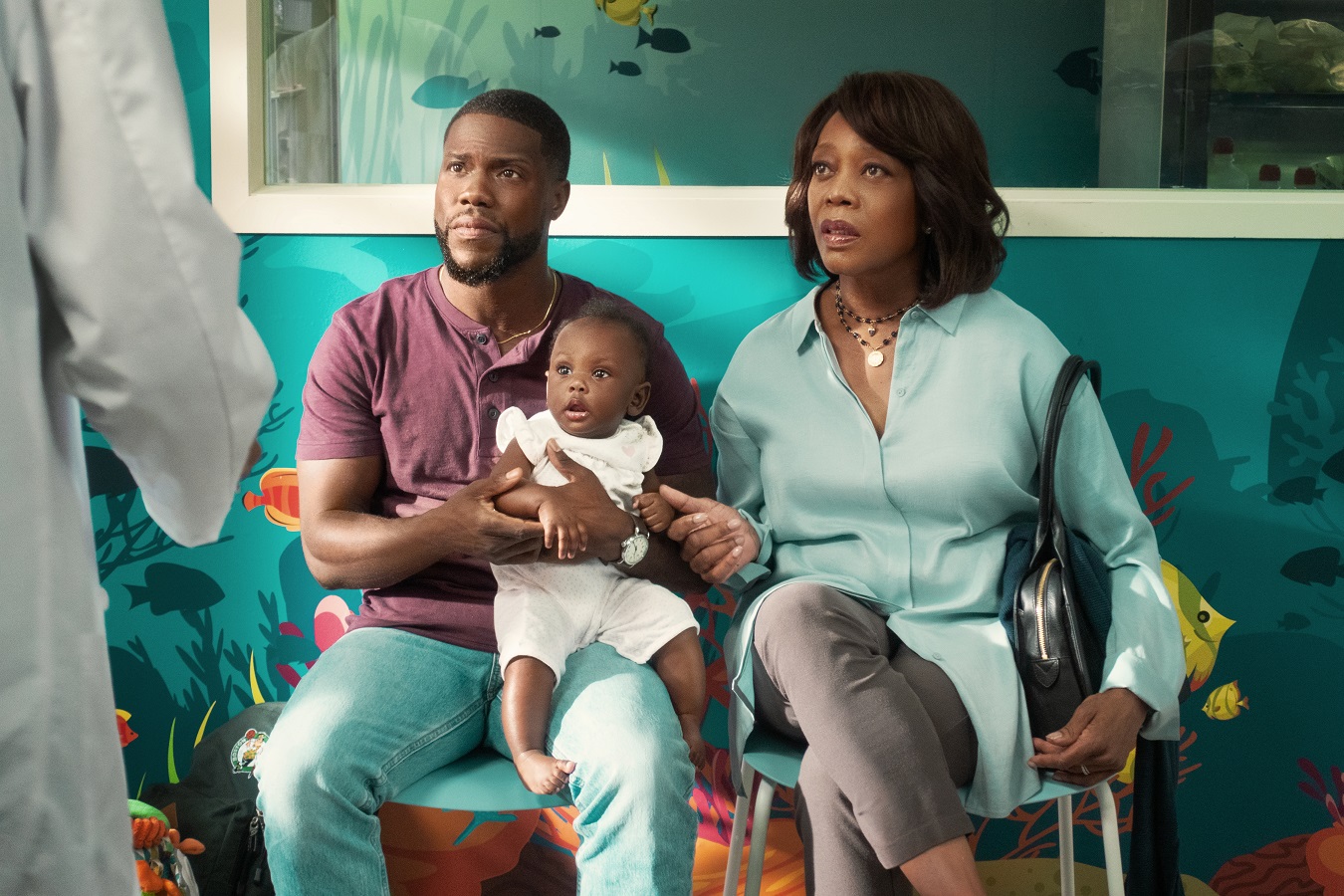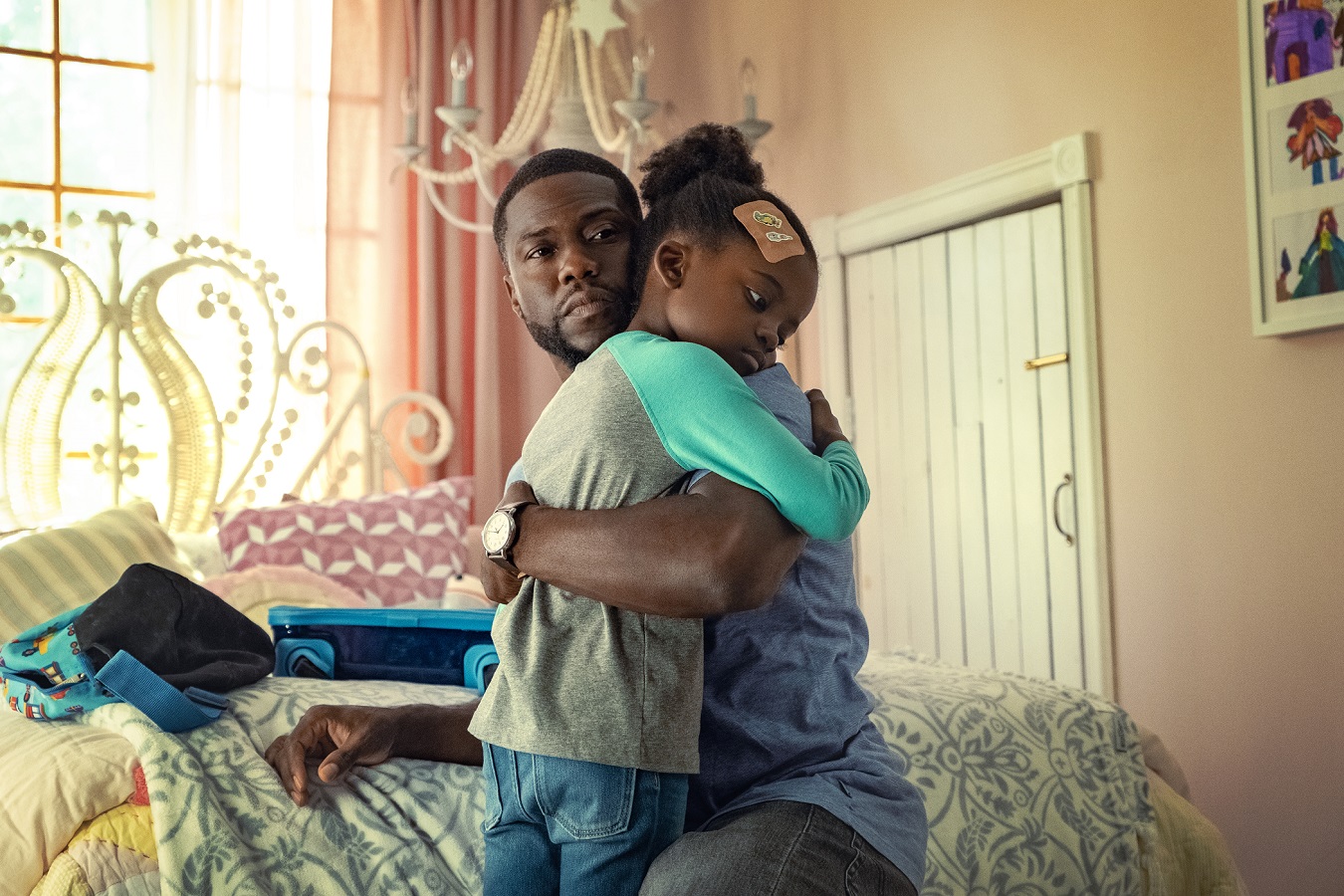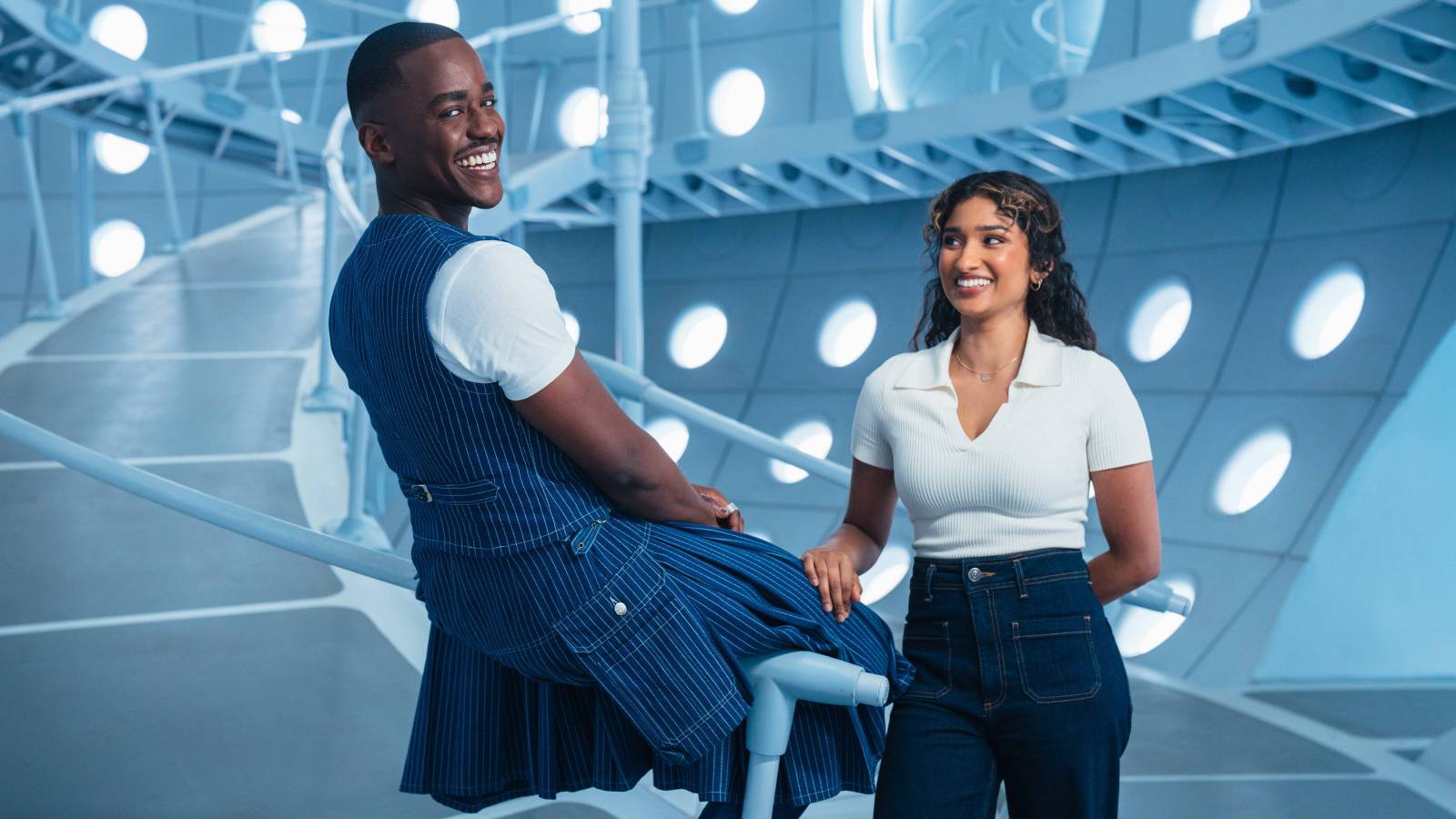What to Watch Verdict
Kevin Hart's effective lead performance makes 'Fatherhood' a fine but slight watch.
Pros
- +
👨👦Kevin Hart slips comfortably into a more dramatic role.
- +
👨👦The chemistry between Hart and his on-screen daughter is solid.
- +
👨👦The direction is careful and patient.
Cons
- -
👨👦The true story is often elided for a more familiar character arc.
- -
👨👦Some of the twists feel like lazy contrivances.
- -
👨👦The sameness of the story makes the story somewhat forgettable.
Fatherhood hits Netflix June 18th, 2021.
Any popular comic actor worth his or her salt eventually embraces the opportunity to make a more dramatic film. The chance to show critics and audiences that there’s more going on than just the ability to crack wise is too alluring for so many performers, from Bill Murray to Will Ferrell to Jim Carrey. And so it is as well now for Kevin Hart. Hart’s best known for films like Ride Along and Jumanji, movies that utilize his diminutive status while emphasizing his often manically aggressive energy to varying levels of success. (Arguably his funniest film to date remains the odd-couple action comedy Central Intelligence, the first time he paired up with Dwayne Johnson.) But now, with Fatherhood, Hart tackles a more directly emotional, weighty role to mild success at best.
Fatherhood is based on the true story of Matthew Logelin, who was happily married and expecting his first child with his wife Liz. As in reality, the film version of Matthew (Hart) is struck by horrendous tragedy: due to complications from childbirth, his wife dies in the operating room, leaving the immature but kind Matthew the burden of raising his daughter Maddy alone in Boston. Though Matthew is initially aided -- in passive-aggressive fashion -- by his mother-in-law and father-in-law (Alfre Woodard and Frankie R. Faison), and a couple of his similarly goofy friends (Lil Rel Howery and Anthony Carrigan), he has to really take on the task alone. As time passes, we see how Matthew and his daughter (played as a 5-year old by Melody Hurd) cope without a mother and wife in their lives.
Fatherhood lives or dies mostly on Hart’s charm. Although it’s based on a true story, Fatherhood doesn’t delve too deeply into how Logelin’s honesty about his heartbreak and being a single father ended up becoming the thrust of a popular blog, leading to him writing a book and starting a charitable foundation. (The closest the film comes is by referencing the title of that book, Two Kisses for Maddy, when Matthew kisses his daughter twice -- once for him and once for her late mother.) It’s a smart choice, if only because there would be something a little weird and tone-deaf about turning this tragedy into an arc of how Logelin’s life had some unexpected turns past just the challenges of single parenthood. That said, by sidestepping that side of Logelin’s life, Fatherhood ends up somewhat bland in the writing, by director Paul Weitz and co-writer Dana Stevens.

So it’s a good thing that Hart is mostly capable at both the playful moments -- he has solid chemistry with Hurd -- and at darker moments from the funeral and ensuing wake to Matthew’s inability to let go of his daughter more than her inability to move onto a new chapter of life. When the story jumps forward a few years, and Matthew has the added complication of beginning to tentatively start a relationship with another woman coincidentally named Liz (DeWanda Wise), Hart is also effective in navigating the way Matthew feels attracted and guilty at the same time for being attracted to another woman.
Some of the story’s twists seem more like contrivances than real details (even if they were real details), such as Maddy suffering an injury while Matthew enjoys time away with his new girlfriend, and him missing multiple calls as a result. But Hart effectively anchors the story even in these moments, shifting from tenderness to frustration very well. If Weitz does anything well as director here, it’s letting Hart work through the emotions patiently, capturing every detail without it ever feeling forced or overlong.
Fatherhood works best in depicting the fractured interpersonal relationships Matthew has now that his wife is gone. The weakest element of the film revolves around Matthew’s work; although Hart is joined there by Carrigan and Paul Reiser as his boss, these scenes rarely feel funny or lived-in, but more a way to just pad out the running time to go past 90 minutes. There are plenty of complications in Matthew’s and Maddy’s lives without his work looming in the background, though there’s admittedly a weirdly timely touch of Matthew struggling to balance being a dad and a remote employee, an accidental tie-in to the pandemic.
Fatherhood was originally set to be released in theaters before Sony sold it to Netflix, after which the film got looped into Higher Ground Productions, the distribution arm headed up by none other than former President Barack Obama and his wife Michelle. The film is far better evidence than the recent remake of The Upside that Kevin Hart can pull off a more dramatic role if he’s asked to do so. This movie feels like it must have been a challenge for him -- there’s very little mugging or comic riffing, even in the scenes where he’s paired with Howery or Carrigan. The movie as a whole is mildly interesting, a Netflix raison d’etre by this point. But Hart’s performance is worth watching, and good enough to keep the movie enjoyable from start to finish.
Josh Spiegel is a freelance cultural critic who has been published in Slashfilm, SyFy, ScreenCrush, The A.V. Club, The Hollywood Reporter, The Washington Post and others. His favorite films include Singin’ in the Rain, The Rocketeer, Pinocchio and A Matter of Life and Death. His favorite TV shows include Ted Lasso, Only Murders in the Building, Deadwood and Lost. He lives in Phoenix with his wife, two sons and too many cats.












